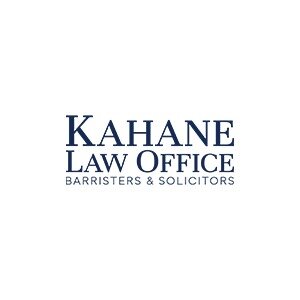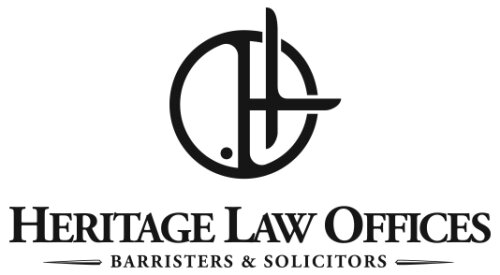Best New Business Formation Lawyers in Edmonton
Share your needs with us, get contacted by law firms.
Free. Takes 2 min.
List of the best lawyers in Edmonton, Canada
About New Business Formation Law in Edmonton, Canada
Starting a new business in Edmonton, Canada involves several legal considerations. The process requires not just a clear understanding of federal and provincial laws, but local regulations and rules as well. It covers business structure decisions, registering your business name, applying for business licenses and permits, and ensuring compliance with tax laws. Beyond setting up, other factors like environmental regulations, employment laws, privacy laws, and intellectual property rights are part of the array of legal aspects businesses need to deal with.
Why You May Need a Lawyer
While forming a new business, a lawyer can offer much-needed assistance on a number of key issues. They can help you choose the appropriate legal structure for your business, whether it be a sole proprietorship, a partnership, a corporation, or a cooperative. Lawyers can also handle necessary paperwork, from registering your business name to applying for relevant permits and licenses. They can ensure you're in compliance with tax regulations, and guide you through specific city laws and guidelines relating to zoning, environmental regulations, and advertising. Additionally, having legal support can be crucial when dealing with contractual agreements, disputes, or employment law matters.
Local Laws Overview
The laws concerning business formation in Edmonton, Canada fall under a mix of federal, provincial, and municipal regulations. The Business Corporations Act, Alberta is a major piece of legislation that governs how businesses are formed and operated in the province. Business names must be registered under the Alberta Partnership Act. The City of Edmonton also has city-specific regulations to follow, covering areas like zoning and advertising. The city's by-laws require businesses to obtain necessary licenses and development permits before commencing operation.
Frequently Asked Questions
1. How do I choose the appropriate business structure?
Choosing an appropriate business structure depends on the nature of your business, potential risks, tax implications, and your long-term business objectives. It's advised to seek legal counsel to understand the implications of each structure and select the best fit.
2. How do I register my business name in Edmonton?
An Alberta NUANS report is required to register a business name. It ensures the name is not identical to one already in use. This report and registration can be handled with the help of a lawyer.
3. What local Edmonton permits might I need for my business?
The City of Edmonton might require you to hold a business license, development permits, building permits, or signs/advertisting permits. Specifics depend on the nature and location of your business.
4. What tax laws do I need to be aware of for a new business in Edmonton?
New businesses need to comply with federal, provincial, and local tax laws. This includes GST/HST registration, payroll deduction obligations, and municipal business taxes.
5. What if I want to set up a home-based business in Edmonton?
Home-based businesses in Edmonton must comply with specific local by-laws, including zoning, business licensing, and home occupation class regulations. You may need to consult with a lawyer to navigate these regulations.
Additional Resources
The Alberta Government has in-depth resources relating to starting a business, and the City of Edmonton provides guides on local permits and regulations. The Edmonton Chamber of Commerce can also provide resources and support for new businesses. Legal clinics or legal service providers may offer low-cost advice or consultation sessions.
Next Steps
If you require legal assistance for New Business Formation, start by researching reputable law firms or lawyers specializing in this area. Set up consultations to discuss your specific needs and plan accordingly. It's important to stay informed and proactive about the legal requirements for your new business to ensure a smooth launch and sustained success. Remember that investing in legal advice upfront can potentially help you avoid costly mistakes and disputes in the future.
Lawzana helps you find the best lawyers and law firms in Edmonton through a curated and pre-screened list of qualified legal professionals. Our platform offers rankings and detailed profiles of attorneys and law firms, allowing you to compare based on practice areas, including New Business Formation, experience, and client feedback.
Each profile includes a description of the firm's areas of practice, client reviews, team members and partners, year of establishment, spoken languages, office locations, contact information, social media presence, and any published articles or resources. Most firms on our platform speak English and are experienced in both local and international legal matters.
Get a quote from top-rated law firms in Edmonton, Canada — quickly, securely, and without unnecessary hassle.
Disclaimer:
The information provided on this page is for general informational purposes only and does not constitute legal advice. While we strive to ensure the accuracy and relevance of the content, legal information may change over time, and interpretations of the law can vary. You should always consult with a qualified legal professional for advice specific to your situation.
We disclaim all liability for actions taken or not taken based on the content of this page. If you believe any information is incorrect or outdated, please contact us, and we will review and update it where appropriate.











